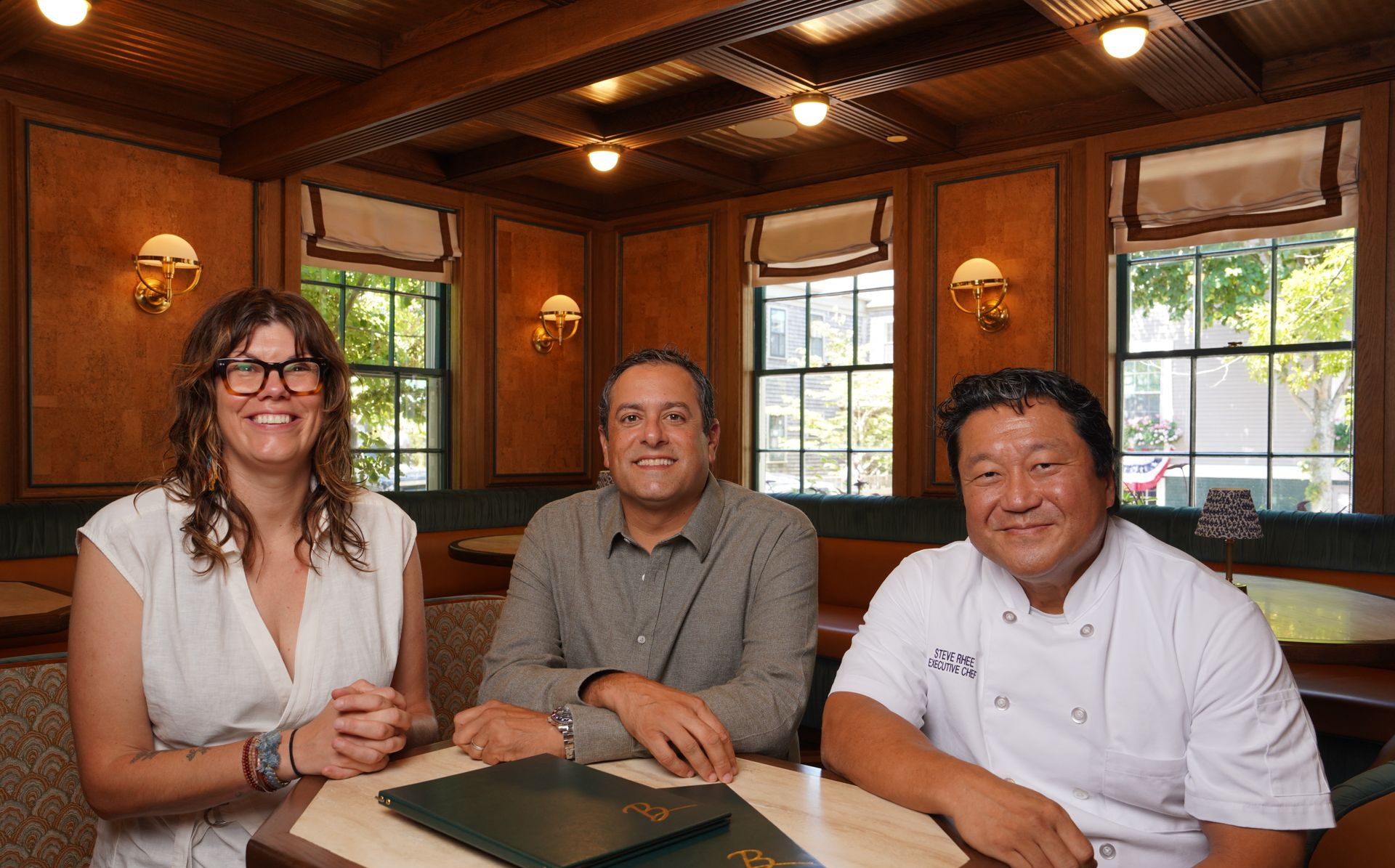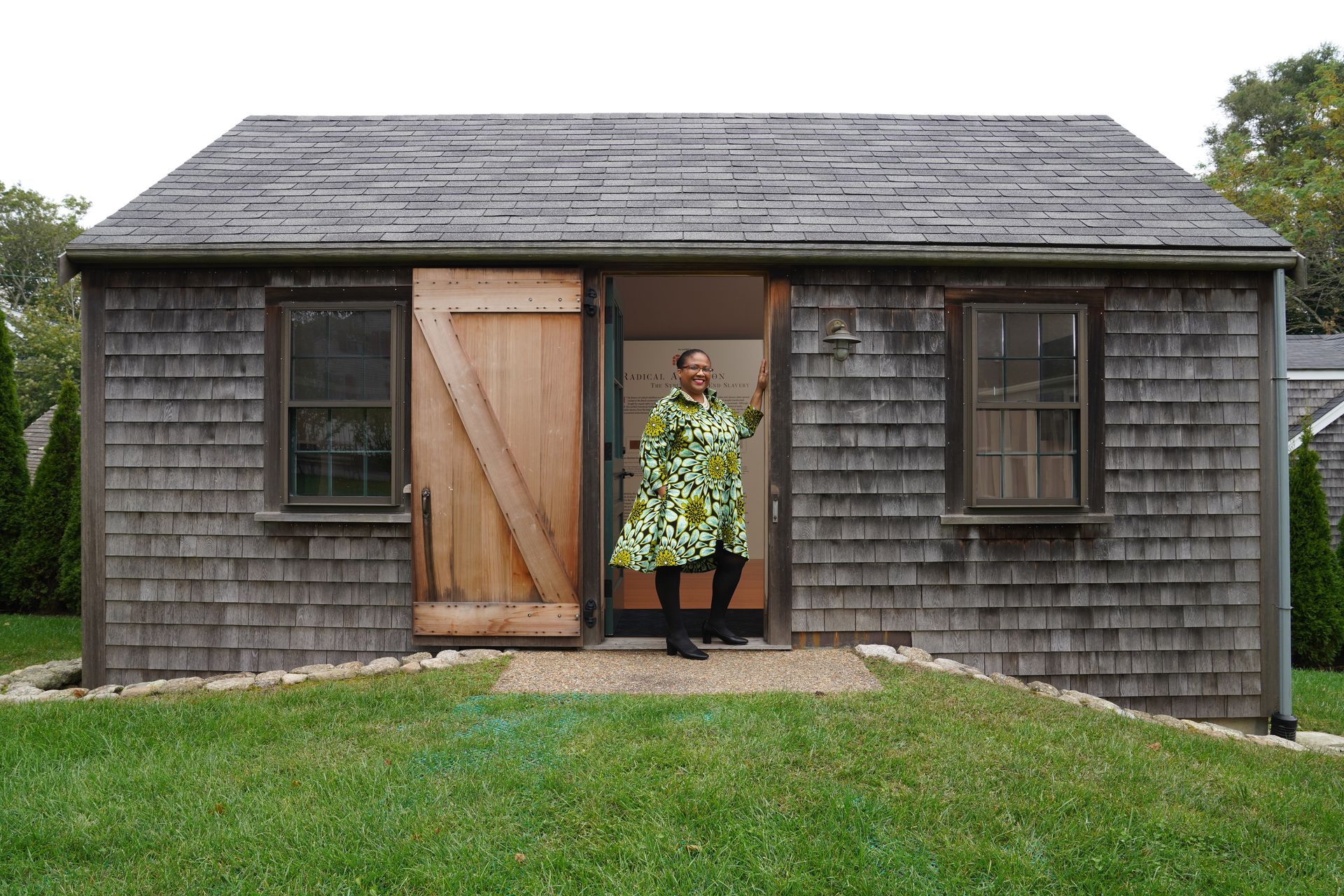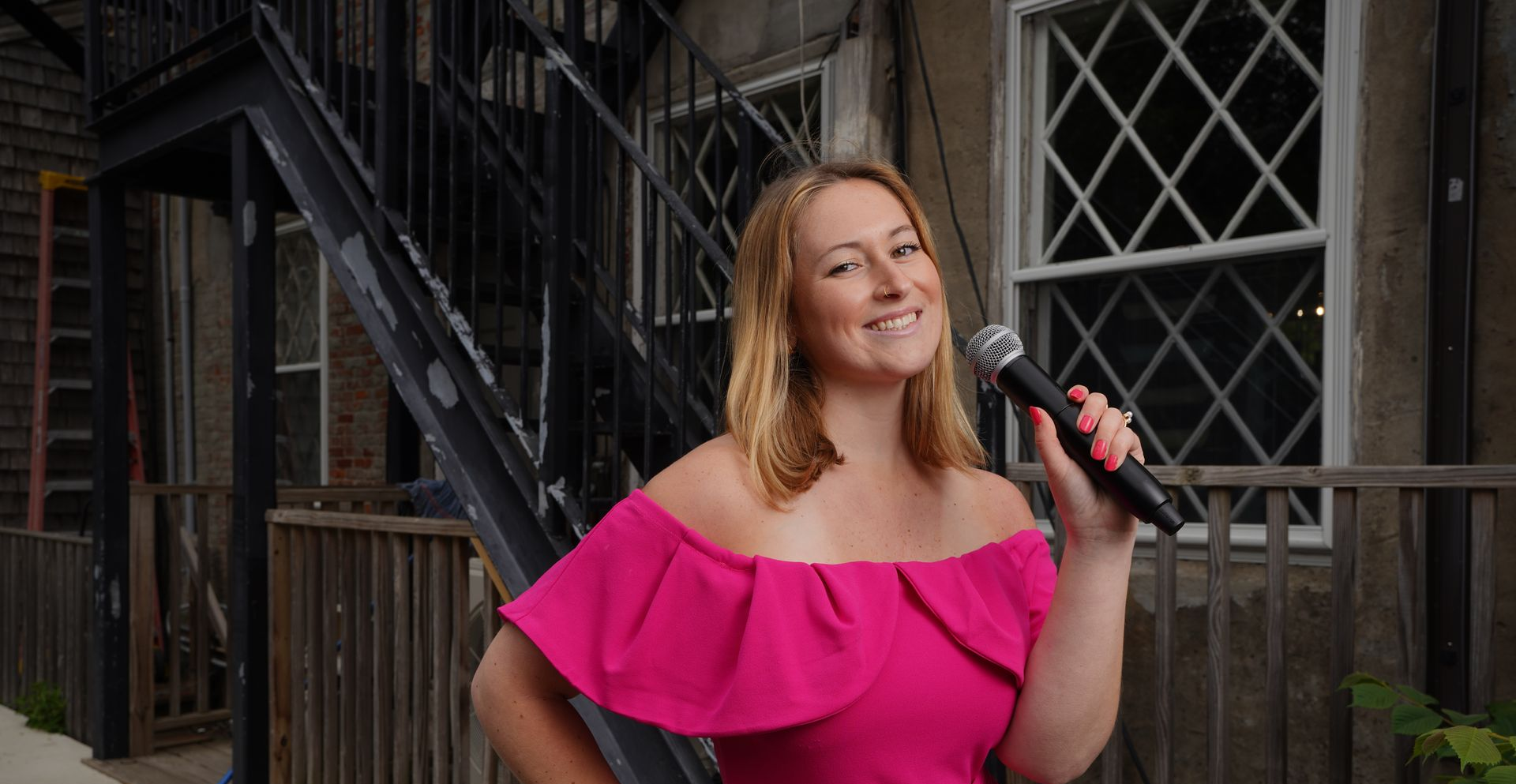HUNGER IS NO GAME
A deeper look into Nantucket's food insecurity.
FOOD & DRINK
story by Larry Lindner
Photography by Kit Noble
"I have had moments when I had zero in my bank account and zero in my pocket and had to go around my cabinets and find whatever it is and cook,” says Maria Partida, a divorced mother of three who runs her own Nantucket-based housekeeping business. Sometimes, she says, when short-term summer visitors vacate a house they have leased, they leave behind food they bought but never opened. Because the place needs to be completely emptied out for the next renters, she brings it home.
The offseason is the hardest. “Getting enough food in the winter is a scramble,” she reports. “You go and try to find the loose change in your house, hoping that you will find [money] that you forgot in one of your jacket pockets.”
Partida’s experience isn’t rare on Nantucket—food insecurity runs rampant on the island, often the result of housing insecurity. With rents averaging nearly $3,000 a month, there’s often a shortfall in the grocery budget. Someone “could be making a solid living by the standards of off- island,” says Select Board Vice Chair Brooke Mohr. “But if you’re spending 60 to 70 percent of your income on housing, there’s not a lot of money left to go to the supermarket and buy food for your family. There are people on-island who are actually going hungry.”
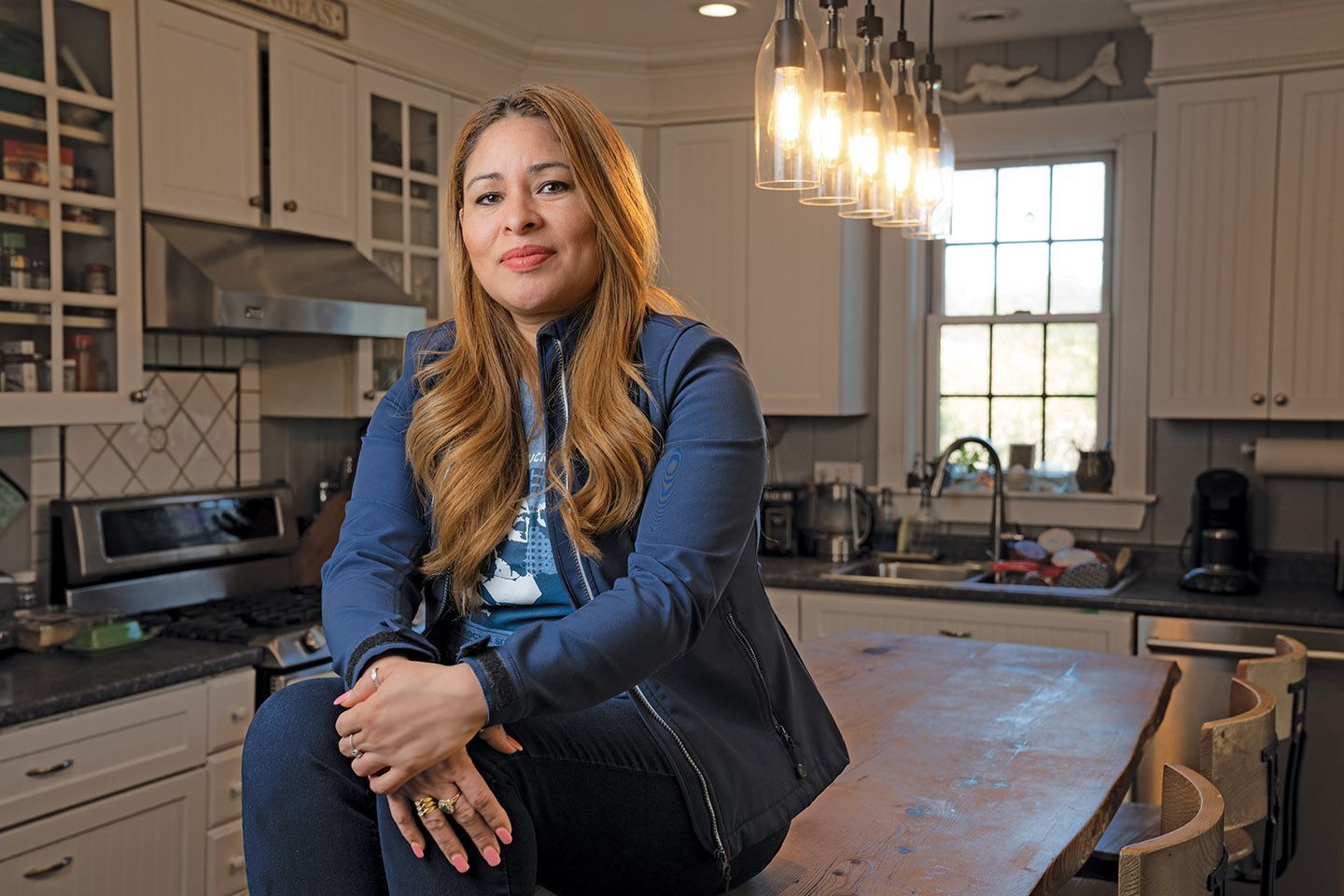
Indeed, while one in eight American households suffers from food insecurity, for year-round Nantucketers, that number rises to nearly one in three—more than 4,500 people. Sometimes the problem manifests itself as flat-out hunger. In other cases, it might be the inability to put nutrient-dense meat and fish on the table as well as vegetables and fruits and relying instead on cheaper fillers. One elderly woman on a fixed income, for example, has English muffins for breakfast and will then have English muffin pizza for dinner. An eighth-generation Nantucketer descended from the Swains, Starbucks and Colemans says that on many occasions while she was growing up, her parents had trouble putting food on the table. Her grandparents would share their soup. “Whatever you could stretch is what you ate,” she says.
Mohr points out that when people go to a restaurant on-island, “the person putting the plate in front of them may not be able to feed their kids.” She adds, “There are people working in kitchens on Nantucket whose families would not be fed if their employers weren’t letting them take home leftover food at night.”
It’s not that there aren’t organizations on island to help ease the crisis. There are actually dozens of them. But they have been working in a scattershot manner, with many people slipping through the cracks. That is changing, however, thanks to the formation two years ago of the Nantucket Resource Partnership, or NRP. Headed by Mohr as board president, its mission is to coordinate the efforts of all the other organizations tackling food insecurity on Nantucket and make sure provisions get to the people who need them.
To help figure out where the bottlenecks are and how to resolve them, the NRP has contracted with Process First, a data/technology consulting firm focused on social impact work. Mohr says the company allows “a kind of bird’s-eye view so it’s easier to identify where there are problems that need to be fixed. They have the research and systems development expertise.” They also have deep roots on the island. The firm’s founder and principal is Matt Haffenreffer, who spends a lot of time on Nantucket in his family’s home. He works closely with the company’s community and systems strategist Kelly Steffen, who also has been coming to Nantucket since he was a child and now lives here year-round.
One of the things Process First has done is develop a computerized form called Food First, which allows programs that provide food to reach out to people who need it rather than suppose that food-insecure people will find them. Before the advent of Food First, says Mohr, “someone at a counseling center might hand you a phone number for the Food Pantry over here, for WIC over there and for Meals on Wheels for seniors over there. What I know as a social worker is that people who are struggling in crisis have the least bandwidth to navigate.”
With Food First, people at almost every single social service agency on the island—Fairwinds, the Boys and Girls Club and so on—ask certain questions of the people they come into contact with who might be food insecure, including whether they have basic transportation to pick food up or need it delivered and whether they simply need groceries to cook or ready-to-eat hot meals (many do not have kitchen facilities). They then put that information into the food-wide system, and someone reaches out to the person, easing them into a food program that they might not even know about.
To date, says Steffen, Food First has made enough referrals to food security programs to impact 15 percent of the island’s food-insecure population. For instance, largely because of the referral form, 80 families have been receiving a weekly box of fresh produce—enough to feed a family of three or four—from Nourishing Nantucket, a program administered by the Pip & Anchor market on Amelia Drive. More than 140,000 servings of fruits and vegetables have been distributed since 2022.
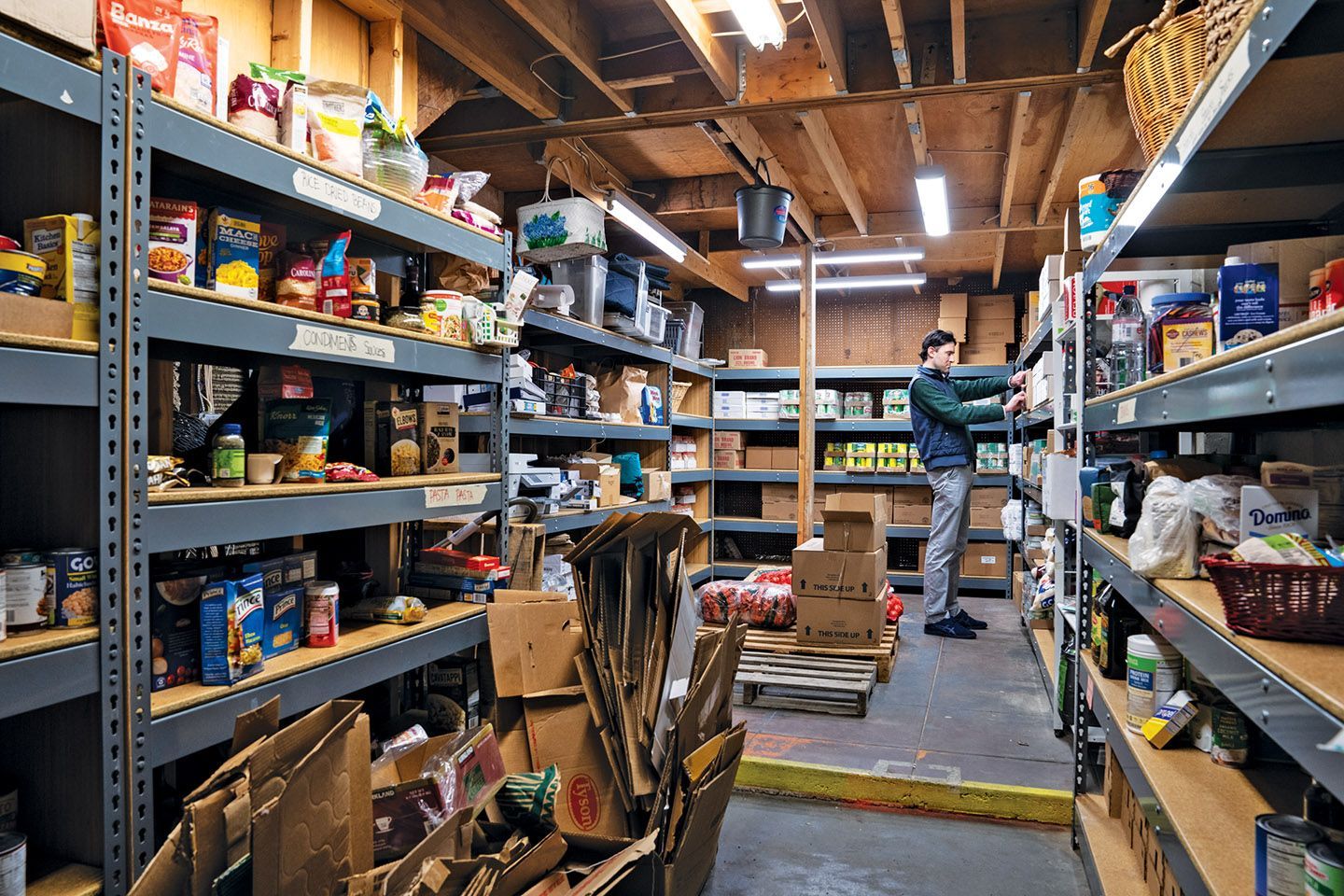

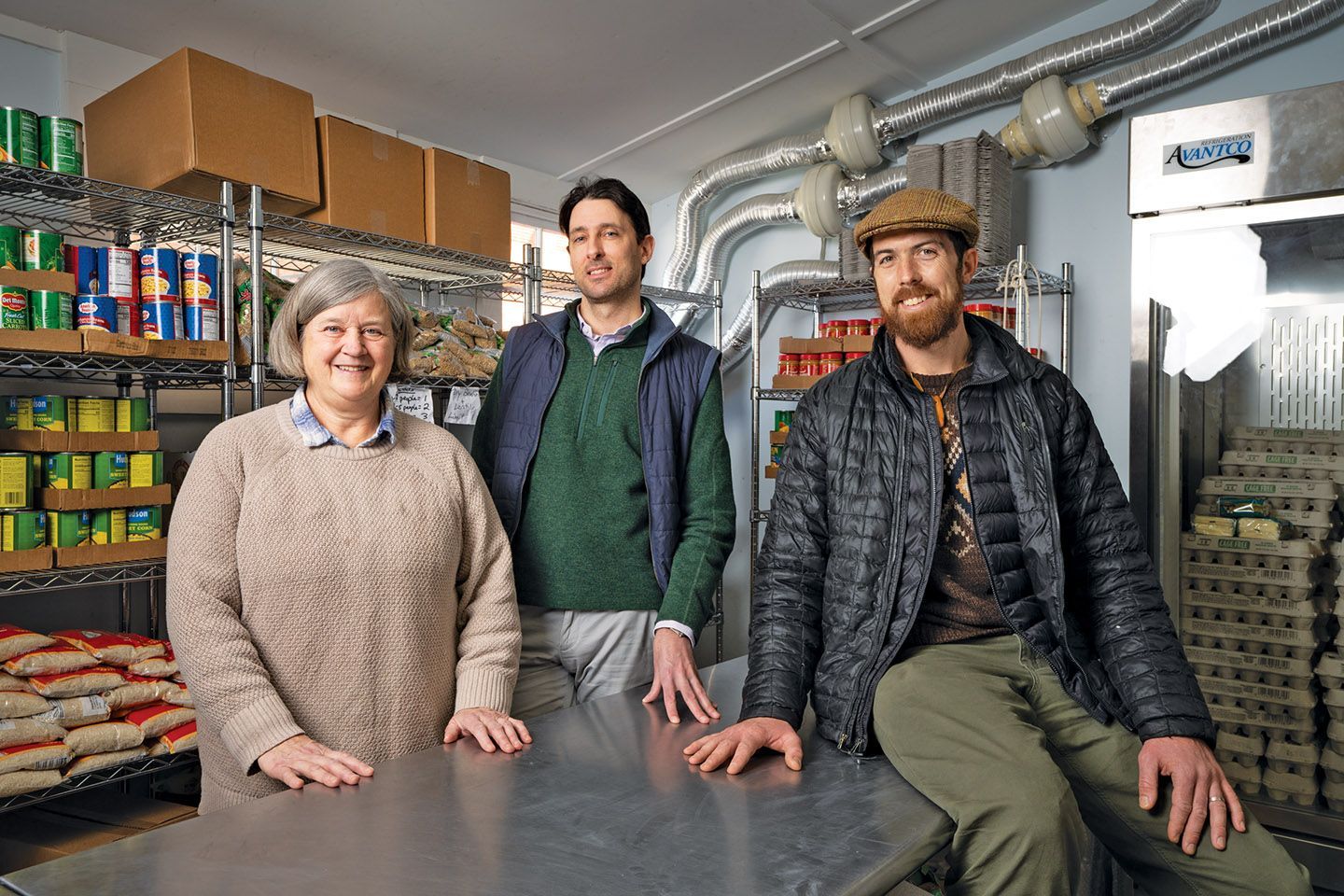
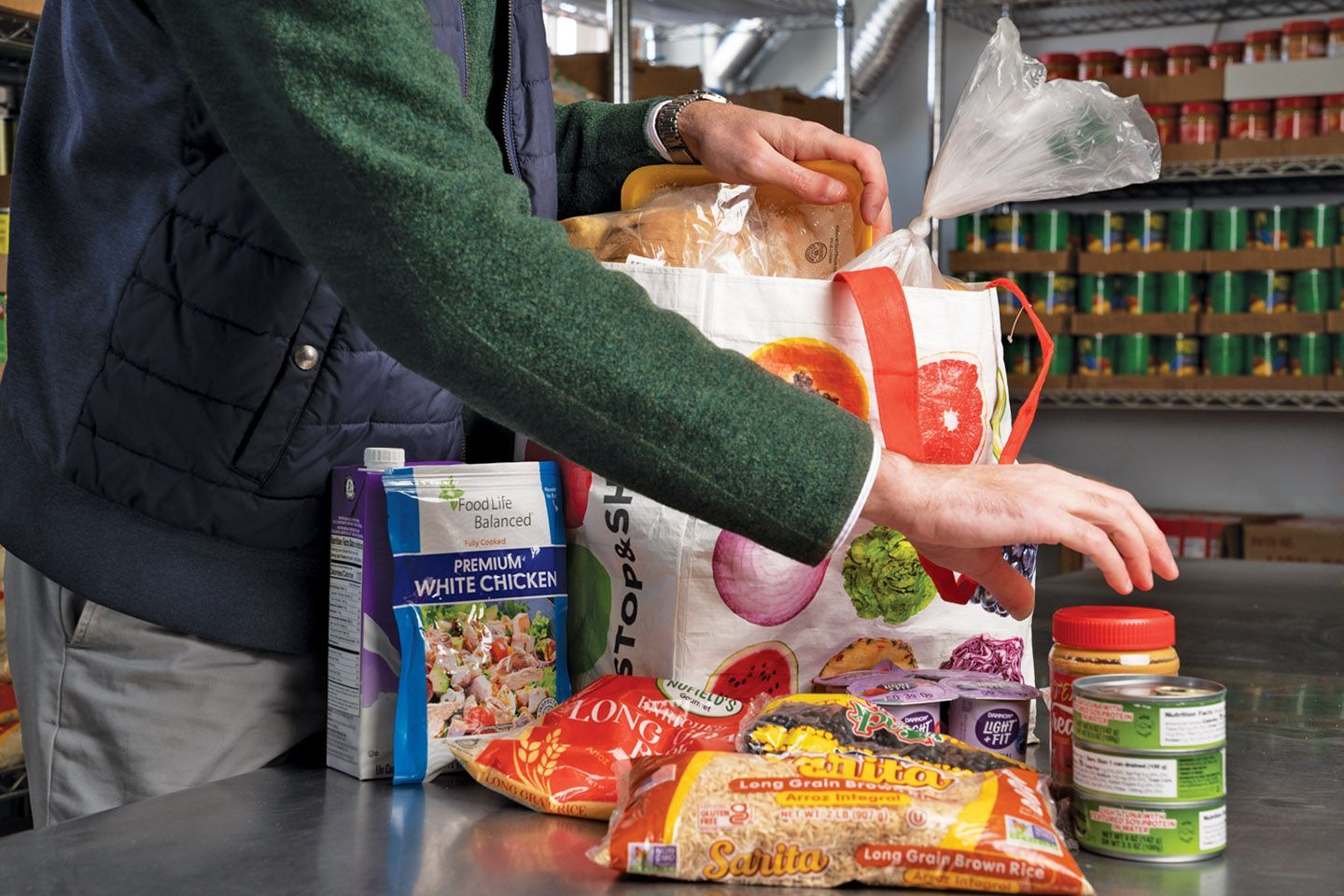
“Every week we’re feeding over 300 people,” says Chris Sleeper, co-founder of Pip & Anchor. “Everything comes from as close by as possible and is seasonal.” That means that in summer, “you’re talking about strawberries and raspberries, asparagus,” he says. One week this past
winter, each box contained carrots, potatoes, daikon radish, kale, spinach, kohlrabi, apples, onions and lettuce.
Another program, Fresh Connect, administered by Nantucket Food, Fuel and Rental Assistance, has also benefited hundreds of people. It’s a prepaid debit card program of $100 a month per person (up to $500 per family) that is usable at the island’s Stop & Shops. Haffenreffer points out that programs like these can be funded by charitable foundations, which is critical because
those entities have lower eligibility criteria than government food assistance programs. His company has, in fact, been taking a deep dive into the issue of how to build local food programs that ease eligibility criteria. “If you make $70,000, that disqualifies you for many state and
federal food programs,” he says. That much money is enough in most places. “But on Nantucket,” he says, “if you’re paying $3,500 a month in rent, after taxes that leaves you 15 grand a year.”
It’s not enough to put enough food, or at least enough nutritious food, on the table with all of life’s other expenses. A further benefit of these programs is that they erase the stigma. “It’s really dignified access,” Steffen says. When you walk into Pip & Anchor to pick up your box, you’re like any customer who has paid for a weekly box of produce. There’s no visible distinction between those who can afford the food and those who can’t. It’s the same with the debit card
used at the Stop & Shops. There’s no way for shoppers to tell who’s who.
The stigma is on everyone’s mind. The eighth-generation Nantucketer knows someone who went to the island’s food pantry only two or three times after signing up because, as she puts it, “there’s no discreetness” there. “There’s this feeling of pride that steps in the way of people being able to help themselves,” she says. “If people could have privacy, it would absolutely encourage them to go for the programs.”
Select Board member Thomas Dixon, who helps oversee food pantry operations as assistant director of Nantucket Food, Fuel and Rental Assistance, is well aware of the issue. While he says that Process First has helped sign up more people for assistance from his organization via its Food First questionnaire, he understands some islanders’ hesitation. “Maybe in the future people could shop at the food pantry to help remove the stigma,” he says, the way people
both shop at Pip & Anchor and pick up free boxes of produce there. “There’s something very personal about food,” he says. “It’s very sensitive.”
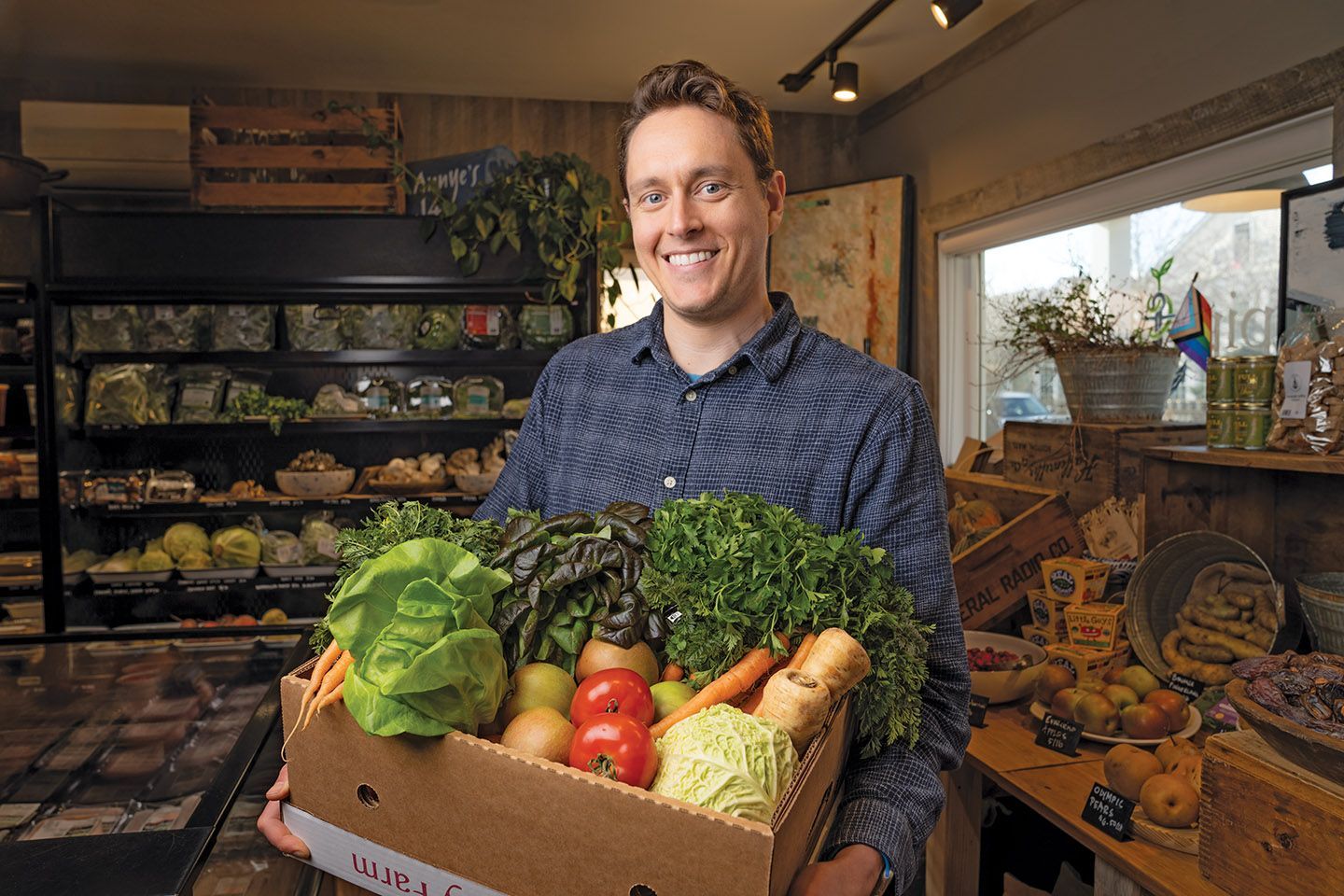
But the bigger problem right now is a lack of funding. Two years ago, the Community Foundation for Nantucket received a $1.8 million grant from the state that it distributed to address food insecurity. New grants have been applied for since then, but the going is tough. For instance, the waiting list for the weekly box of food at Nourishing Nantucket keeps growing—Maria Partida is one of those on the list. “I think the program is amazing,” she says. “Vegetables are super expensive on-island.”
Unfortunately, the money is about to run out even for those already in the program, let alone for those trying to join. That’s why people who are integrally involved say charitable largesse is critical.“The limitation is not the amount of food available,” says Sleeper of the Nourishing Nantucket program. “The limitation is the money.”
Mohr frames it like this: “While I’m 100 percent behind building out [in order to ease] our housing insecurity, right now the quicker path to alleviating stress on people is to feed them and their families. If somebody wrote a check for $100,000, we could give a lot of people a Fresh Connect card so they could go to the supermarket every single week instead of just sometimes.” Even $100 takes care of one
person’s card for a month. Similarly, just $74 buys a box of fresh produce for someone through Nourishing Nantucket. “We’re all in this together,” Mohr says, “making sure our neighbors are fed, when they need to be fed because whether you come for a week or for the summer or live here year-round, your experience with a person behind the counter at a store is going to be better if they’re not hungry. The person laying brick at your house is going to be performing better if they’re not worried about how they’re going to be putting food on the table that night for their kids.” Haffenreffer concurs, adding, “We can get this right. We can make it work.”

